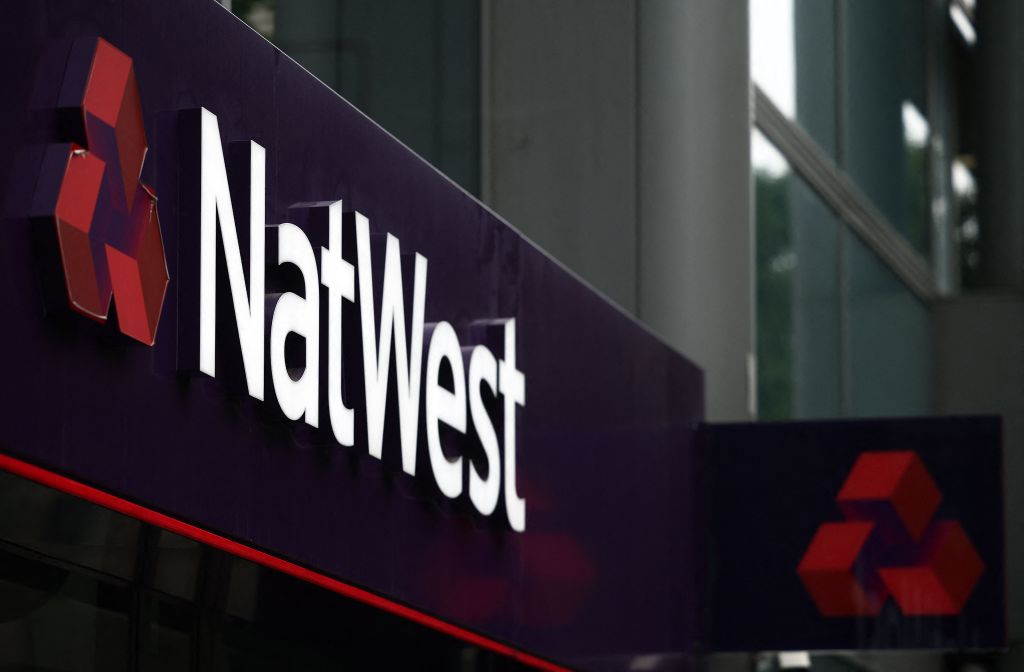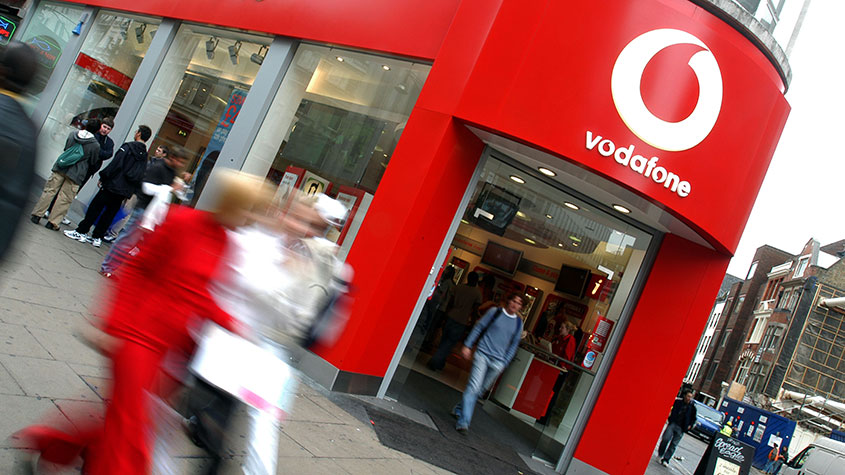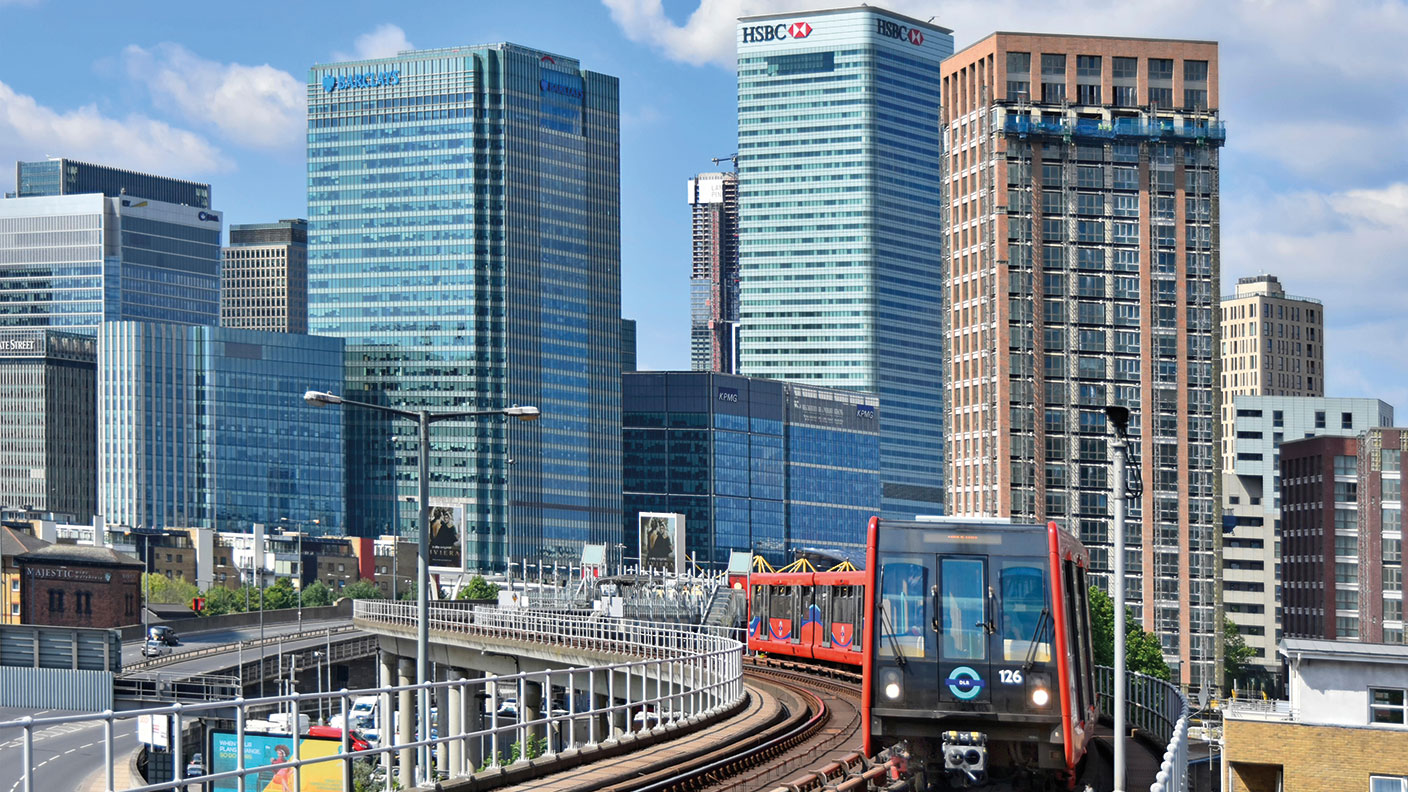New technology is threatening the big banks, but there's one that's still worth buying
Mobile and online banking are making traditional bank branches obsolete. But one bank in particular is still a buy, says Matthew Partridge.

Get the latest financial news, insights and expert analysis from our award-winning MoneyWeek team, to help you understand what really matters when it comes to your finances.
You are now subscribed
Your newsletter sign-up was successful
Want to add more newsletters?

Twice daily
MoneyWeek
Get the latest financial news, insights and expert analysis from our award-winning MoneyWeek team, to help you understand what really matters when it comes to your finances.

Four times a week
Look After My Bills
Sign up to our free money-saving newsletter, filled with the latest news and expert advice to help you find the best tips and deals for managing your bills. Start saving today!

"My bank's been turned into a trendy wine bar."
Fifteen years ago, NatWest ran a series of ads featuring a pensioner whose bank branch had been shut down.
Fast-forward to this week, and most papers are reporting that RBS (which owns NatWest) is going to shut down 5% of its remaining branches.
MoneyWeek
Subscribe to MoneyWeek today and get your first six magazine issues absolutely FREE

Sign up to Money Morning
Don't miss the latest investment and personal finances news, market analysis, plus money-saving tips with our free twice-daily newsletter
Don't miss the latest investment and personal finances news, market analysis, plus money-saving tips with our free twice-daily newsletter
And RBS is not alone. Lloyds has outlined plans to create a digital' bank or in other words cull a lot of its high street branches.
It's all part of the digital revolution. But will this wave of change really destroy the old banks? Or are we writing them off too soon?
Online banking has been around for longer than you think
Online banking has been around for nearly 20 years. Yet until very recently, the idea that it would entirely replace bank branch networks was closer to sci-fi than reality.
Indeed, the internet banks that managed to survive the tech bubble and bust were those that offered access to physical branches as part of a regular bank. People could go online for routine services, but they still wanted to be able to speak to someone face-to-face. And even then, the big high street players continued to dominate banking.
So it seemed that the main banks would get away with adding a small amount of online functionality to their services, while keeping their core model intact.
The financial crisis in 2007 and 2008 helped to shake this, by trashing faith in the banking system as a whole. And now the rise of smartphones is really shaking things up.
My colleague Dominic talked about the impact on developing nations yesterday.But it's had a huge impact in developed nations too. The convenience of being able to carry out transactions on the train or while waiting for the bus has made people much more open to using online banking for a wider range of things.
As one speaker at a recent conference I attended on European retail banking put it: "When [customers] had to log in on their computers, they typically checked their balance every week at most". But now "some check their balance after every transaction".
What's more, this change is taking place much more quickly. He reckoned that it took eight years for online banking to become widely accepted. But use of mobile banking which is after all, just an extension of desktop-based online banking has surged in the last two years. For example, Barclays launched its mobile app just before the Olympics. It already has more than three million customers.
Why banks are worried
Banks are afraid of many things, from regulation to fines to changing technology. But all of these threats boil down to one word competition.
In some ways, the crisis was good for big banks the ones that survived. Thanks to bailouts and mergers, the mainstream banking market is even less competitive than it was before the system collapsed in 2008.
Between them, Lloyds, RBS and Barclays now control around half of all current accounts and two-thirds of small business services. Throw in HSBC and Santander, and the five largest players account for 70% of current accounts and 95% of business services.
This wouldn't be so bad if they all were vigorously fighting each other. But they haven't needed to. Customers have historically been very apathetic about comparing deals in the banking sector. Some studies suggest that people are more likely to switch their spouse than their bank.
But mobile banking threatens this dominance in three ways. Firstly, it makes it far easier to see how much your bank is charging you, and compare that with the fees levied by other banks. You can then use this information to switch your account if you're not happy, or simply want better value.
Mobile banking also lowers the barriers to entry. Having to build a network of physical branches is very expensive. New entrants either have to raise a huge amount of money or just operate in a few areas.
But ditch the need for a physical bank network, and suddenly it's much easier for new banks to start up and challenge incumbents. And the big banks can't do much to deal with this growing pressure. Even if they avoid falling behind the technology curve, transparency and lower barriers to entry will erode both their market share and their profits.
Don't write off the big banks yet
At least, that's the general view. However, it's worth looking at what's happening in practice. Finland, like other Nordic countries, is further ahead of the trends in this sector.
Experience there suggests that although income per transaction falls as customers go digital, the overall number of transactions goes up. Costs also fall. As a result, the overall impact on even traditional banks' earnings hasn't been too brutal so far.
So at the right price, the traditional banks could be worth a look. On that front, Barclays (LSE: BARC) looks interesting. It seems to be taking the threat of mobile banking seriously, putting money into developing its own system. And the new chief executive seems to be succeeding in his quest to build up the balance sheet.
In any case, it currently trades at a discount of nearly 25% to tangible assets. This puts it on a par with the banks in Europe and is a big enough margin of safety' to overcome any long-term fears.
Our recommended articles for today
US mid-term elections: the lowdown for investors
Victory in America's mid-term elections handed the Republicans control of both houses of Congress. Matthew Partridge looks at what it means for investors.
Hipsters and hedge fund managers: grappling with the same unique issues
The more hedge fund managers try to be different, the more they are the same, says Merryn Somerset Webb.
On this day in history
6 November 1928: Jacob Schick patents the first electric razor
On this day in 1928, Jacob Schick was issued a patent for the electric razor after inventing one based on the reloading mechanism of a repeating rifle.
Get the latest financial news, insights and expert analysis from our award-winning MoneyWeek team, to help you understand what really matters when it comes to your finances.

-
 Should you buy an active ETF?
Should you buy an active ETF?ETFs are often mischaracterised as passive products, but they can be a convenient way to add active management to your portfolio
-
 Power up your pension before 5 April – easy ways to save before the tax year end
Power up your pension before 5 April – easy ways to save before the tax year endWith the end of the tax year looming, pension savers currently have a window to review and maximise what’s going into their retirement funds – we look at how
-
 UK banking stocks: what’s the latest this results season, and are they worth a look?
UK banking stocks: what’s the latest this results season, and are they worth a look?All five major UK banks released their annual results in February, reporting profit increases. But the sector has long been unloved by investors. Are UK banking stocks hidden gems, or better avoided?
-
 Britain’s most-bought shares w/e 12 August
Britain’s most-bought shares w/e 12 AugustNews A look at Britain’s most-bought shares as of 12 August, providing an insight into how investors are thinking and where opportunities may lie.
-
 S4 Capital – a company that still has much to prove
S4 Capital – a company that still has much to proveTips Audit delays set shares tumbling at advertising agency S4 Capital. It needs to show it can turn growth into profits, says Bruce Packard.
-
 When to buy shares in NatWest, Britain's worst bank
When to buy shares in NatWest, Britain's worst bankTips Rising interest rates should lift profits for the banking sector if inflation doesn’t get out of control, says Bruce Packard.
-
 How UK banks went from Big Bang to universal failure
How UK banks went from Big Bang to universal failureCover Story The 1986 deregulation shook up the banks, but the all-in-one model that it created is bad for customers and investors. Specialists do a better job – as the real fintech winners are showing, says Bruce Packard
-
 Activist investing: forget hedge funds, leave it to private investors
Activist investing: forget hedge funds, leave it to private investorsOpinion Demands from “activist investor” hedge funds are every bit as short-termist as the management teams they are trying to shake up, says Matthew Lynn. Private investors will take a long view.
-
 Evergrande: Chinese property giant spooks global markets
Evergrande: Chinese property giant spooks global marketsNews Global markets fell this week as investors worried about the fate of Evergrande, China’s most indebted property developer, which is teetering on the brink of default.
-
 HSBC’s profits surge – but will the share price?
HSBC’s profits surge – but will the share price?News Pre-tax profits at banking giant HSBC rose from $1.1bn last year to $5.1bn in 2021, but the share price remains depressed.